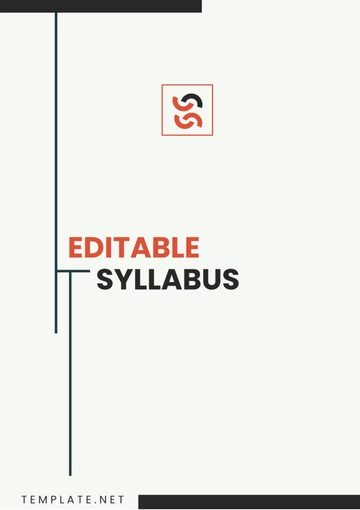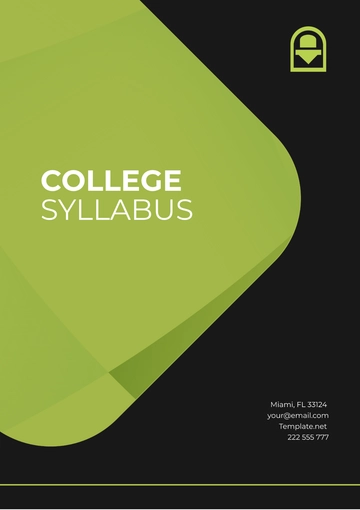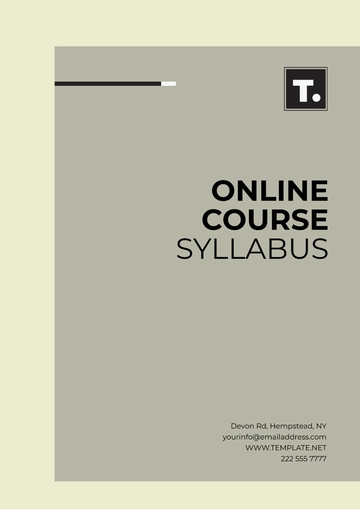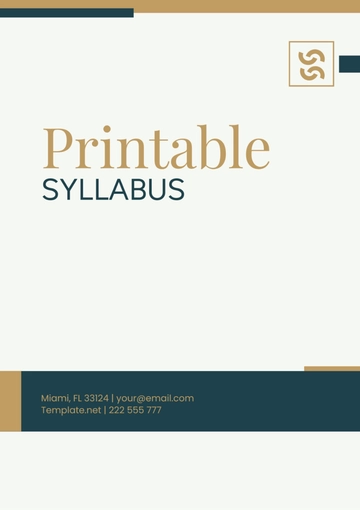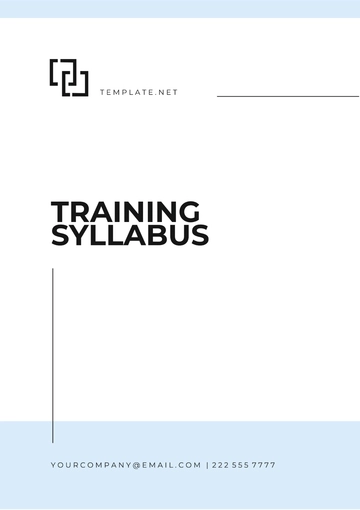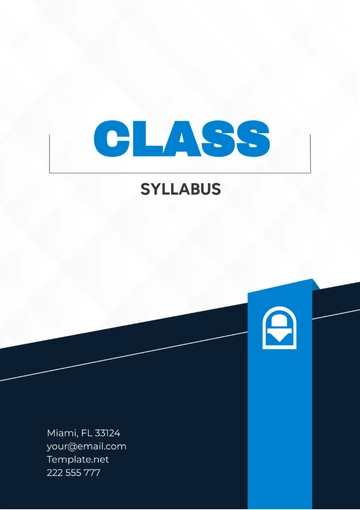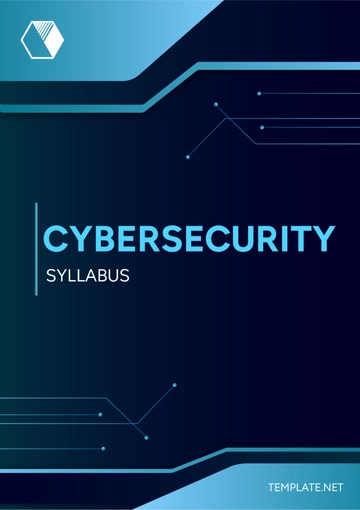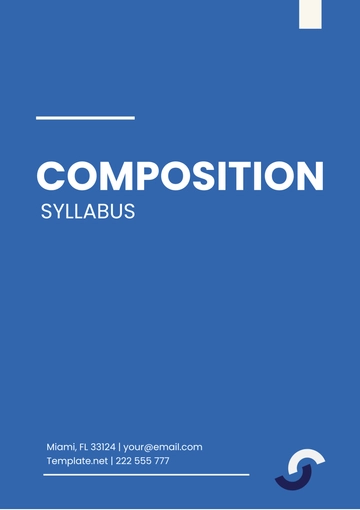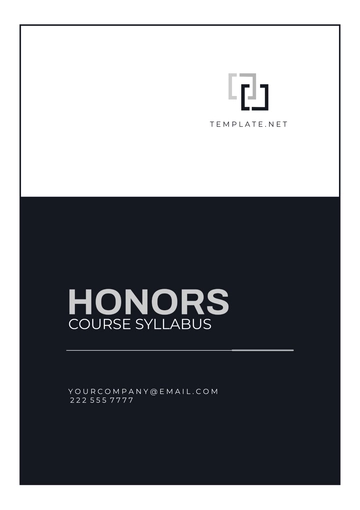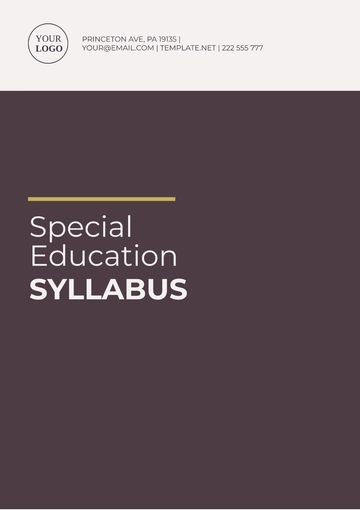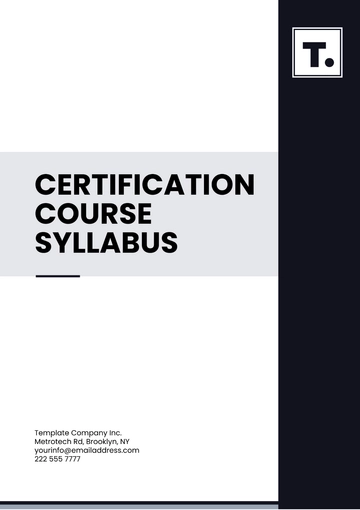Free Change Management Syllabus

CHANGE MANAGEMENT COURSE
Course Title | [COURSE TITLE] |
Course Code | [COURSE CODE] |
Office Hours | [OFFICE HOURS] |
Class Location | [CLASS LOCATION] |
Class Time | [CLASS TIME] |
Class Duration | [DATE] - [DATE] |
1. Course Title and Description
Change Management in Implementing New Software Systems - The course is designed for Project Managers and Department Heads looking to successfully navigate and oversee the implementation of new software systems in their organization. This entails introducing, managing, and adapting to change effectively.
2. Instructor Information
Instructor: [YOUR NAME]
Contact: [YOUR EMAIL]
3. Learning Objectives
Understand the significance and principles of change management in software implementation.
Assess the potential impact and plan for potential risks in software changes.
Create communication strategies to facilitate smooth system transition.
Formulate strategies to overcome resistance and foster support for the new software system.
Monitor and evaluate the effectiveness of change management in software implementation.
4. Course Schedule
Week | Topic | Activity |
|---|---|---|
1 | Introduction to Change Management | Lecture + Discussion |
2 | Risk Assessment & Impact Analysis | Lecture + Group Activity |
3 | Change Communication Strategies | Workshop |
4 | Overcoming Resistance and Building Support | Case Study Analysis |
5 | Monitoring and Evaluation of Change Management | Simulation Exercise |
5. Required Reading and Materials
The Art of Change Management by John Doe
Risk Management in Software Implementation by Jane Doe
Effective Communication in Software Transition by Mike Smith
Building Support for Organizational Change by Lisa Williams
Change Management in IT Departments by Sarah Taylor
6. Assignments and Assessments
Submit a reflective report on the "Art of Change Management".
Create your own risk assessment for a hypothetical software change.
Develop a communication strategy for a proposed software transition.
Present a case analysis on overcoming resistance in change management.
Analyze and submit a report on the change management strategy applied in a real-world software transition.
7. Course Policies
The course expects active participation in discussions, group activities, and simulations.
All assignments should be submitted on provided deadlines.
Plagiarism is not tolerated, and all submitted works should be original.
Respect for differing opinions is required; this is crucial in a learning environment.
Consistent attendance is expected; any absences should be communicated in advance.
8. Grading Policy
Grade Component | Percentage |
|---|---|
Participation | 20% |
Assignments | 20% |
Case Study | 20% |
Final Report | 40% |
Disclaimer
The syllabus that has been provided is intended to serve as a defining path, offering guidance for the progression of this course. All involved parties should be aware and take note that it is not a rigid, unchangeable document. Rather, there exists the possibility of modifications being made to it as and when they are deemed necessary. Generally, such changes will not be made without giving advance notice to those who are directly affected or concerned by them, thereby ensuring everyone remains updated about the current structure and requirements of the course.
- 100% Customizable, free editor
- Access 1 Million+ Templates, photo’s & graphics
- Download or share as a template
- Click and replace photos, graphics, text, backgrounds
- Resize, crop, AI write & more
- Access advanced editor
Discover the ultimate Change Management Syllabus Template at Template.net. Crafted by experts, our editable and customizable template is designed to streamline your change management process. Accessible in our Ai Editor Tool, it offers flexibility and ease of use. Elevate your change management strategies with our comprehensive template suite. Transform your approach effortlessly with Template.net.

